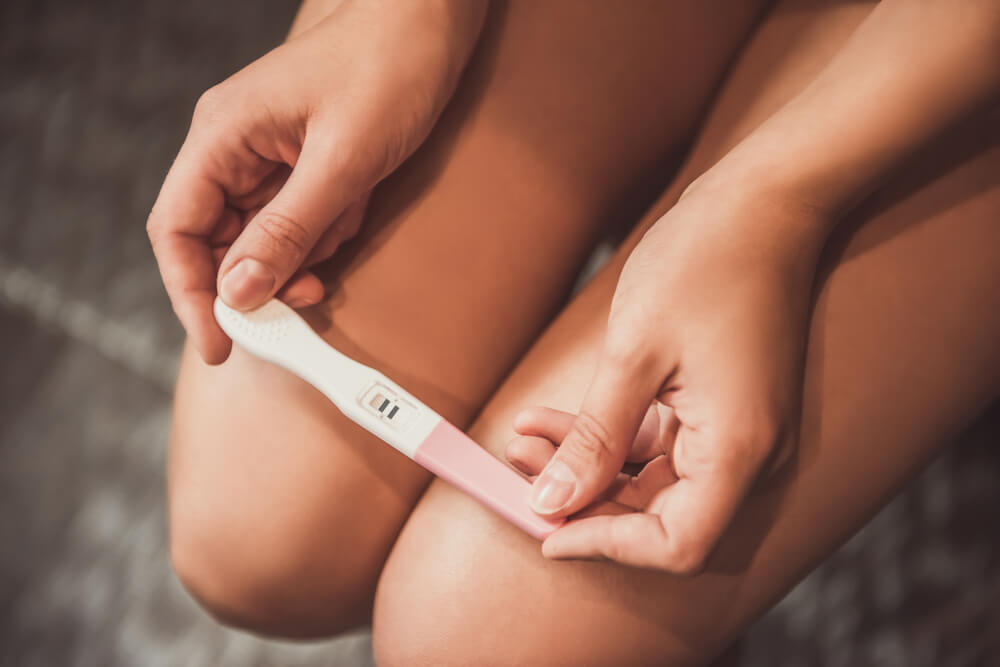Are at-home pregnancy tests accurate? When should I take a pregnancy test? Can the pregnancy test be wrong? These are all valid questions when you opt to take an at-home pregnancy test. Needless to say, depending on the situation, taking the test can be stressful or exciting. This is especially true if you aren’t really sure that you can trust the test’s results.
How accurate are pregnancy tests? When should you take one? Can these pregnancy tests be wrong? In the following article, our experts in obstetrics and gynecology in South Miami, Florida, give you the answers.
At-Home Pregnancy Tests: When You Should Take Them?
Many at-home pregnancy tests state that they can be quite precise in detecting whether a woman is pregnant as early as the first after missing a period. As a matter of fact, there are even brands that claim that they can diagnose pregnancy even before missing your period. Still, most home pregnancy test results will probably be more accurate after you’ve realized that your period is late.
Why? Because shortly following implantation (when the fertilized egg manages to attach to the lining of the uterus), the placenta starts forming, producing HCG or human chorionic gonadotropin, which can be found in both the urine and the blood. HCG is more prevalent in the body during pregnancy, and at-home pregnancy tests check for HCG levels in the urine.
During the earliest stages of pregnancy, the HCG concentration in the urine and the blood rise quickly, even doubling every two to three days. What this means is if you wait a bit longer after missing your period and take the test, then it’s more likely that you will get a more accurate result. More specifically, the test will be positive if you do have more HCG in your urine.
Also, ovulation timing may make a difference regarding the accuracy of these home tests. A woman’s ovulation may change monthly, and the egg may also implant in the uterine lining at different times. Needless to say, this may also affect when HCG levels start to rise. Irregular menstrual cycles may also affect the accuracy of the test results, often making figuring out when to take the test at all.

How To Use At-Home Pregnancy Tests
Most pregnancy tests work by putting the end of the stick-like device in the urine stream. Or, you may dip the test in a urine container. Sometimes, women may also drop urine drops on the test. Regardless of how the test got into contact with the urine, the results should show a few minutes later. In some cases, there’s either a plus or a minus sign, or a “yes” or a “no.” In other cases, there might be the words “pregnant, not pregnant,” or two or one line.
Still, if you use the test, you should follow the directions given with the test. First, you will usually need to wait around two or more minutes to see the results. Some of these tests also have a control indicator, which will usually be a symbol or a line that also appears in the result window. If there’s no symbol or line, the test is not working, and you will need to get another one.
Also, it’s important to note that some of these tests are more sensitive than others. Some of them will need less HCG to show positive results. Lastly, you should also check the test’s expiration date. If it’s past that date, get another test.
Are At-Home Pregnancy Tests Accurate?
Most of these brands state that they are 99 percent accurate, but the truth is that many of these home pregnancy tests will differ in their ability to detect pregnancy in women who have missed their period recently. Getting a negative test result might not mean that you’re not pregnant if your period is late. Sometimes, it’s a good idea to take another test a week after missing your period, along with reaching out to your healthcare provider.
Could Medicine Affect The Results?
In reality, most medicines, like birth control pills, antibiotics, and such, won’t affect the accuracy of these tests. On the other hand, fertility medication and other HCG-containing compounds might affect the accuracy of the test results.
Could Positives or Negatives Be Wrong?
False positives are usually rare, but they might happen. For instance, tests might indicate false-positive results if the pregnancy was lost soon after the fertilized egg was planted into the lining of the uterus. The same might also happen if you have taken a test soon after taking HCG-containing fertility medications. Menopause and ovary issues may also produce false-positive results in rare cases.
False negatives, on the other hand, can be more prevalent. You may get such results in the following cases:
- You’ve tested yourself too early: The earlier you urinate on the test, the harder it is for it to find HCG in your pee. To get the most accurate results, take the test after the first day of missing your period.
- You checked the results early: Follow the given directions when to check the results of the test. If needed, you can always set a timer and check the test when the timer has passed.
- You’ve taken the test later in the day: To get the most accurate test results, you should urinate n the test right after waking up in the morning. That’s when your pee is the most concentrated, and the HCG will be easier to sort out.
The Results Are In What To Do Next?
Based on the results you’ve received, you may take into consideration the following steps:
- If the home test shows positive results or you have tried a few tests and have gotten mixed results, it might be best to schedule an appointment with your healthcare provider. You might need an ultrasound or blood test to get a definitive answer. The sooner you manage to get a confirmation, the sooner you can get started with prenatal care.
- If the test comes back negative because you’ve urinated on it before your period begins, just take the test in a few days or a maximum of a week. It’s essential to do this if you’ve urinated on the test right after or right before your missed period.
- If you are continually getting negative results and your period keeps being late, or if you’re still thinking that you might be pregnant, your best option would be, again, to reach out to your doctor. They may suggest other tests, like blood tests, which are usually more accurate than at-home tests. Apart from that, your doctor will be capable of looking for other conditions that may serve as the underlying cause for your missed period.

When in Doubt, Opt for Expert Help
The key to getting a reliable and accurate result lies in following the instructions that were given with the test. Still, even though they claim to be reliable, pregnancy tests can show false results. That being said, if you are trying to get pregnant, you can always reach out to experts who can give you guidance and educate you on such topics as pregnancy test use or the basics of conception.
That said, feel free to schedule an appointment with our experts today.


